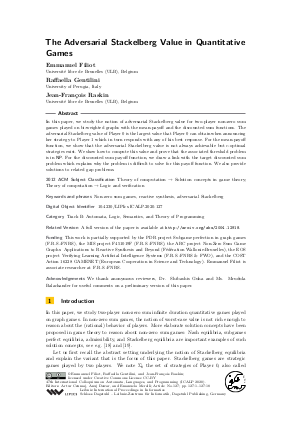LIPIcs.ICALP.2020.127.pdf
- Filesize: 0.61 MB
- 18 pages

 Creative Commons Attribution 3.0 Unported license
Creative Commons Attribution 3.0 Unported license





Feedback for Dagstuhl Publishing